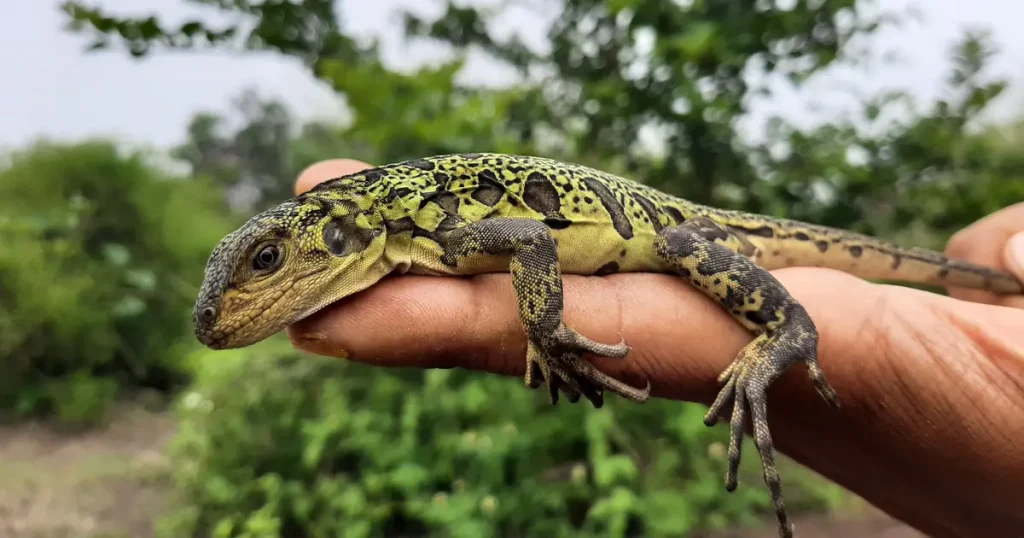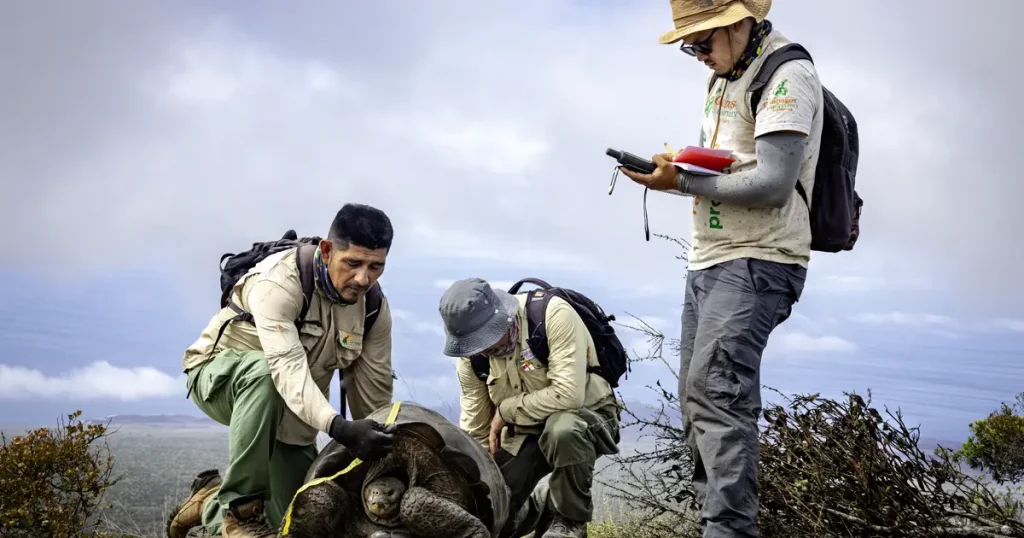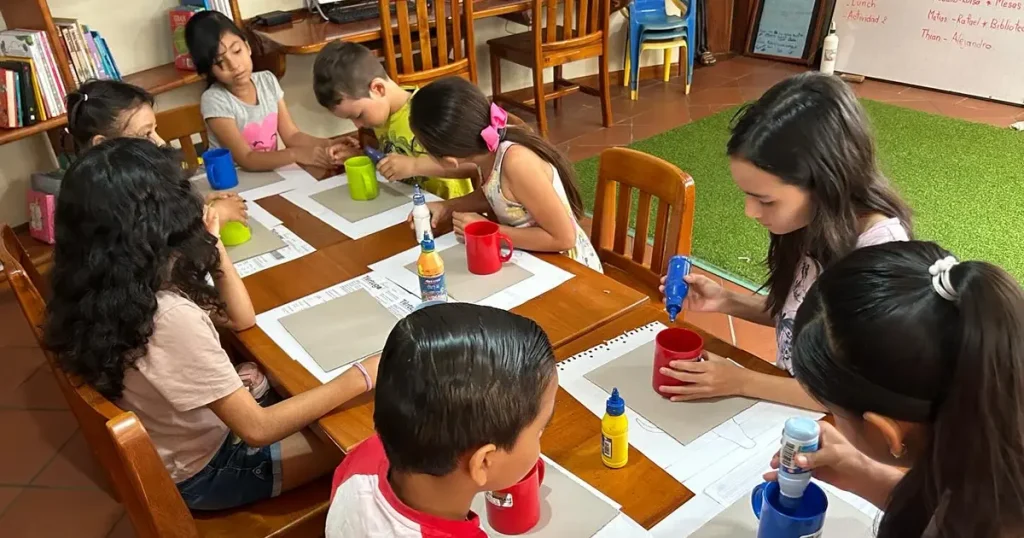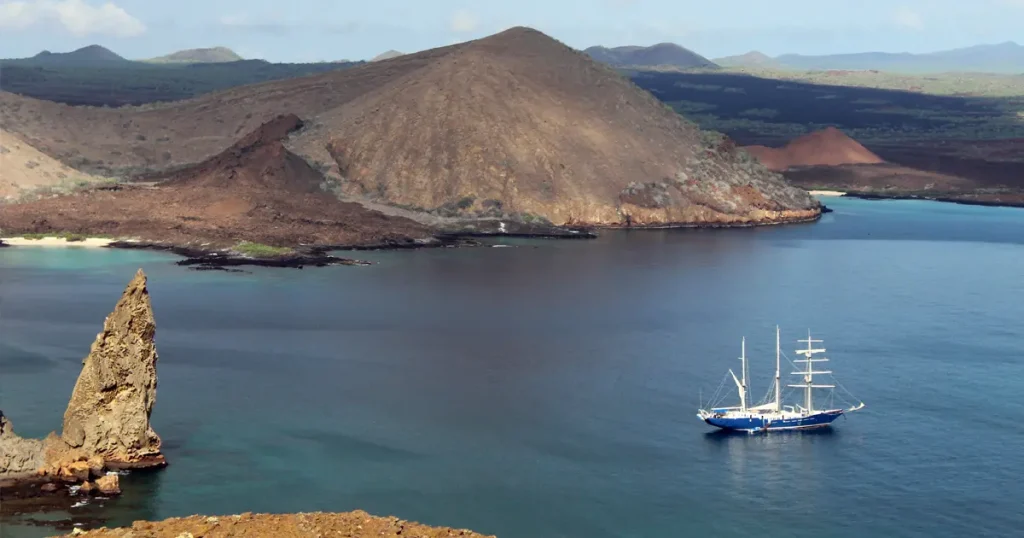New Expedition to Wolf Volcano: Our Ongoing Commitment to Protecting the Pink Iguana
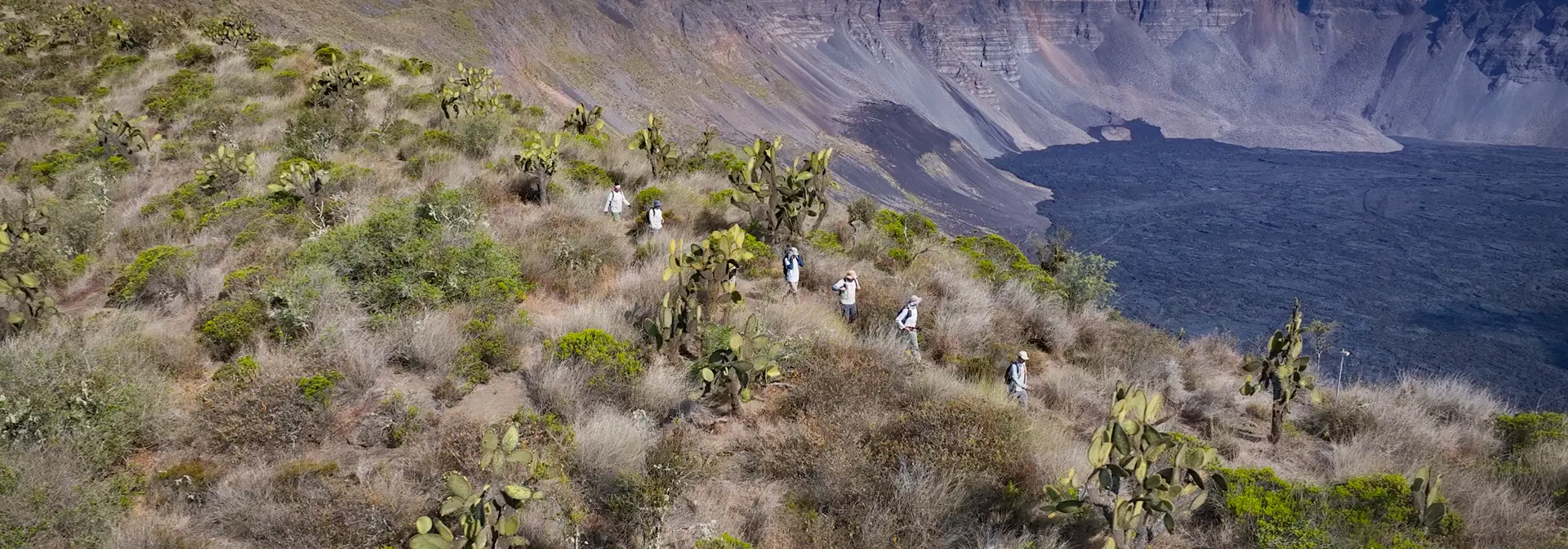
Since 2022, Galápagos Conservancy has been working in collaboration with the Galápagos National Park Directorate to implement the Conservation and Management Plan for the Galápagos pink iguana (Conolophus marthae) for the years 2022-2027. This species, discovered in 1986 and formally described in 2009, is critically endangered, with just 300 individuals remaining. The urgency of protecting the pink iguana cannot be overstated. The plan provides a detailed approach, prioritizing the control of invasive species and conducting research to fill critical gaps in our understanding of the iguana’s ecology.
Recently, a team of eight rangers and scientists from Galápagos Conservancy embarked on an expedition to the remote Wolf Volcano on northern Isabela Island, the only known habitat for the pink iguana. The team was carrying out our responsibility for saving the species: monitoring the population, understanding the threats it faces, and assessing its habitat. The information being gathered are crucial for determining whether and how to move to the second phase of the plan, which may include establishing a potential head-start or captive breeding program to improve the survival of pink iguanas.
Conservation Advances and Ongoing Challenges
The expedition provided important insights that reveal both progress and challenges toward saving the pink iguana from extinction. Healthy adults were observed, which is encouraging. However, no neonates or juveniles were detected. During this expedition, numerous tracks of feral cats were recorded, raising concern about the role of cats in reducing the survival of pink iguanas.
Expanding the Benefits of These Expeditions
The primary objective of these expeditions is to protect the pink iguana, but their impact extends well beyond this single species. Each visit to Wolf Volcano allows for the monitoring of other threatened species in the area. For example, during the recent expedition, 55 yellow Galápagos iguanas (Conolophus subcristatus) were observed, including five neonates. This information is crucial for refining conservation strategies for closely related species that share the same habitat. It also helps determine the impact yellow iguanas may be having on pink iguanas.
The expeditions also collect vital data on the volcano’s endemic giant tortoises (Chelonoidis becki). Observations included both male and juvenile tortoises, as well as a noteworthy number of females, which are more frequently found at lower altitudes during the nesting season. Our conservation team monitors their well-being and identifies potential threats they face. One is an invasion of the Wolf Volcano by an exotic species of guava tree, which park guards are trying to control.
The Pink Iguana Conservation and Management Plan: A Pathway to Recovery
The 2022-2027 Pink Iguana Conservation and Management Plan is strategically organized with phased objectives to guide our efforts. In the first phase (2022-2024), we are concentrating on addressing existing knowledge gaps regarding pink iguana ecology. We are also, where required, controlling invasive species. Our commitment is strong: if we do not see the expected outcomes, such as increased natural recruitment, by the end of year three, we will proceed with the next priority of the plan—implementing a captive breeding and rearing program. This adaptive approach enables us to respond to new challenges and pivot to new strategies that will ensure the survival of this unique species.
Committed to Long-Term Conservation
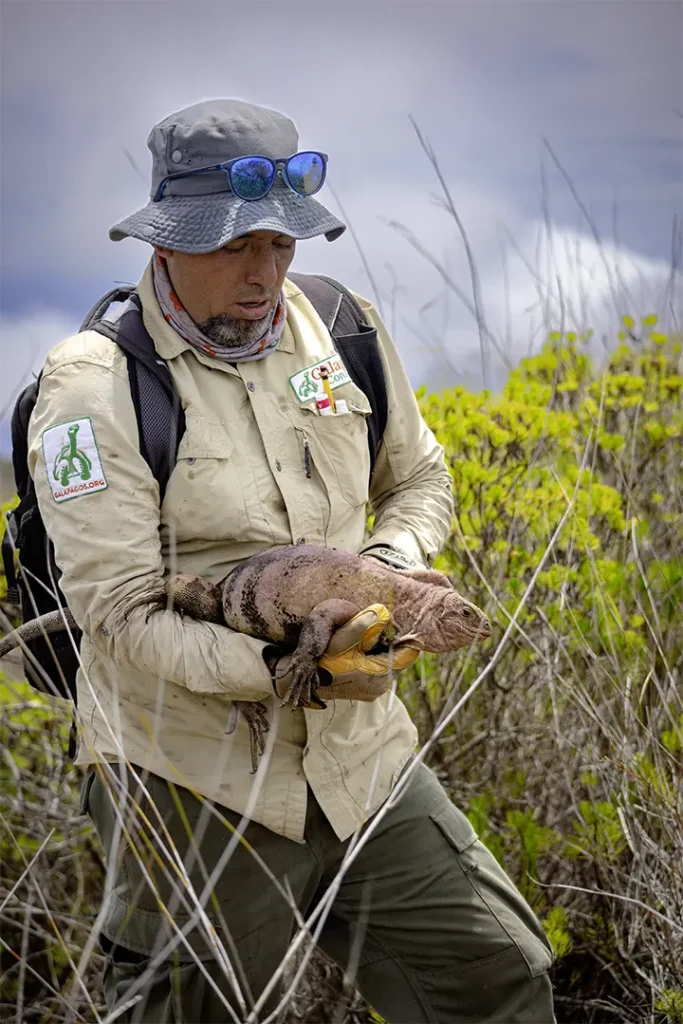
Galápagos Conservancy, along with our partners, is fully dedicated to conserving the pink iguana. We are actively implementing the Management Plan by conducting quarterly expeditions to Wolf Volcano. These expeditions help monitor the iguana population and contribute to predator reduction, thereby improving conditions for the recovery of native species, both pink iguanas and others that inhabit this vulnerable area.
The future of the pink iguana relies on a continued commitment and efforts of many involved in its conservation. As we approach 2025, decisions based on the results from these expeditions will be crucial in determining the next steps for preserving this iconic species of the Galápagos Islands.
A Call to Action
The findings from this expedition go beyond simple data collection; they serve as a powerful reminder of our shared responsibility in wildlife conservation. The absence of young pink iguanas highlights the urgent need for increased intervention, as emphasized by Dr. Jorge Carrión, our Conservation Director, who stresses its importance for ensuring the long-term survival of the species.
Upon returning from this expedition, we not only bring back valuable data but also a renewed sense of hope and a clear vision: together, we can secure a sustainable future for pink iguanas, yellow iguanas, and giant tortoises on Wolf Volcano. Protecting the wildlife of Wolf Volcano is a shared responsibility.
